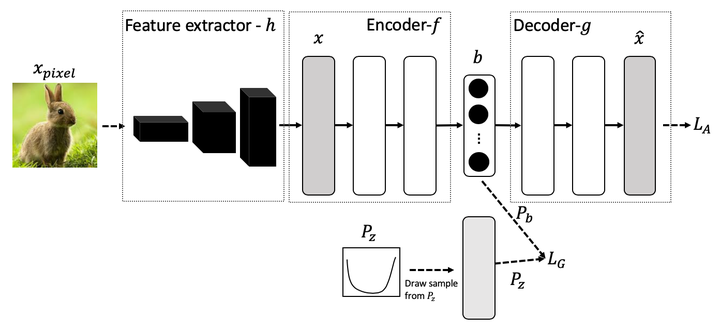Image Hashing by Minimizing Independent Relaxed Wasserstein Distance

Abstract
Image hashing is a fundamental problem in the computer vision domain with various challenges, primarily, in terms of efficiency and effectiveness. Existing hashing methods lack a principled characterization of the goodness of the hash codes and a principled approach to learn the discrete hash functions that are being optimized in the continuous space. Adversarial autoencoders are shown to be able to implicitly learn a robust hash function that generates hash codes which are balanced and have low-quantization error. However, the existing adversarial autoencoders for hashing are too inefficient to be employed for large-scale image retrieval applications because of the minmax optimization procedure. In this paper, we propose an Independent Relaxed Wasserstein Autoencoder, which presents a novel, efficient hashing method that can implicitly learn the optimal hash function by directly training the adversarial autoencoder without any discriminator/critic. Our method is an order-of-magnitude more efficient and has a much lower sample complexity than the Optimal Transport formulation of the Wasserstein distance. The proposed method outperforms the current state-of-the-art image hashing methods for the retrieval task on several prominent image collections.